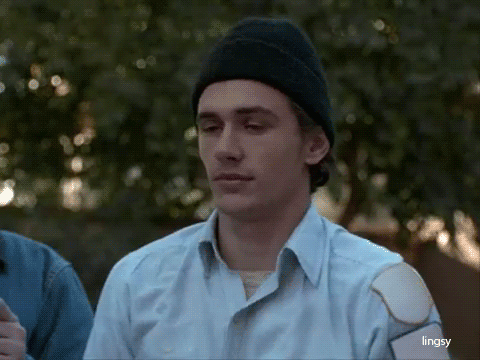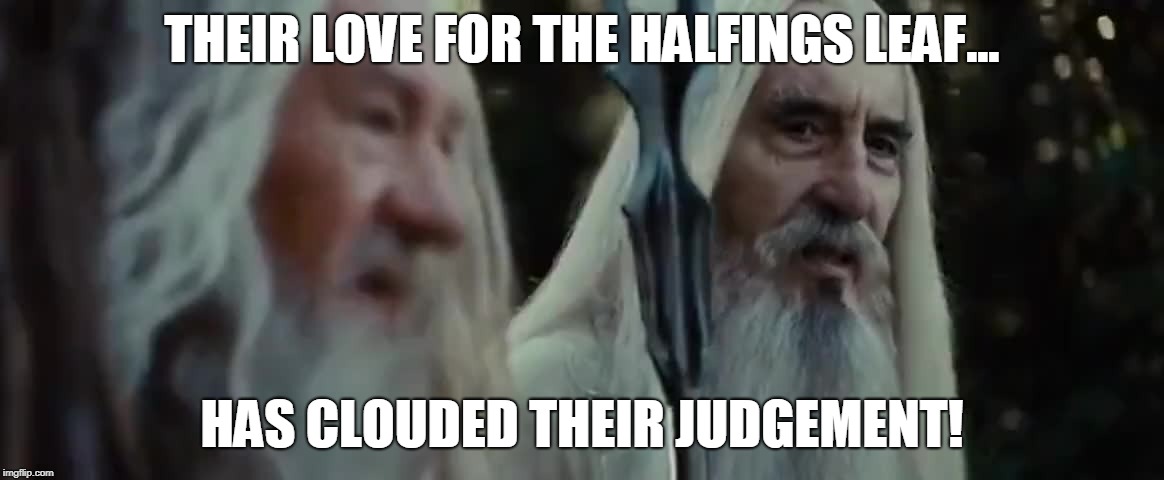As promised, I finally got around to this one. Snagged a Blu-ray from my library. It looked beautiful, although like
Tufts and
europe I'm a bit baffled as to why you'd shoot such a lush environment in B&W. Notwithstanding some sort of
thematic point about viewing things from a black-and-white perspective, I think it's
aesthetically indefensible. Don't really have much to say about the experience itself. Very slow-moving - I was constantly checking the display to see how much time was left, and the two hours total felt more like three - but it had its moments. It was thought-provoking but at the expense of being entertaining. It kind of felt like the cinematic equivalent of reading a cultural studies essay. As many people have said, the highlight of the film was definitely the character of Karamakate. But I didn't really feel like I got to know the man or what made him tick. He was at least an enjoyable guide through the film. Not bad, in the sense that I wasn't hating the experience or cursing
Rimbaud, but also not great, in the sense that I'll never feel compelled to watch this again.
While not the type of film I'd go looking to be entertained by, it was a Helluva flick. Well done. Thought provoking. Acting seemed good. Memorable overall. Two thumbs up.
Got a little dark there when faux-Jesus got cannibalized. 
Shit, that's when it lightened up and got funny. That fucking wackadoodle running around with his crown of thorns and his paper bag KKK minions was a riot. One of the most succinct and hilarious send-ups of what religion is

And memory is certainly a theme in this movie. We hear Theo say about his possessions “They are not just things. They are my bond to Germany. They are the proof of my studies. Nobody will believe me without them.” It is ironic that it was his diaries that allowed this movie to be made as he died in the jungle. Karamakate tried to keep his memories alive by recording images on the wall, and it wasn’t enough. He had to journey back to remember.
That was one of the bits that bugged me. You can't bitch about how "insane" white people are for giving a shit about the possessions that connect them to the past
and cry yourself to sleep over the fact that you lost your connection to the past: The explanation for the "insane" choice to preserve one's possessions is precisely in order to avoid having to cry oneself to sleep over the fact that one lost one's connection to one's past. Memory isn't a steel vault nor is it embedded in "Nature" for us to "listen to" whenever we want. Artifacts connect us to the past, they act as veritable time machines. That's the whole fucking point.
They should've hit that note harder rather than leave hanging the implication that Karamakate's way was more "authentic" or what have you.
That in itself is a very condescending statement and harkens back to that main cultural study question: How do you study other cultures without changing them? I always ascribed to the belief that you can’t.
This isn't a personal attack on you, but this leads me to observe that I think it's more indicative of the stupid "damned if you do, damned if you don't" traps in which such "progressive" thinking often results. If the "white man" downplays old cultural ways in favor of "Western technology," then he's an "imperialist," but if he downplays technology in favor of old cultures, then he's a condescending "Orientalist." It's a lose-lose situation: If you're white, you just have to accept the fact that everything you do and say is wrong.
As Karamakate wisely said early on (in reference to guns but applicable to so much more): “All your science only leads to violence.”
Again, this isn't a personal attack on you, but this is more bullshit. That's not
all that science has given the world. And anyone who genuinely gripes about ignorant shit like that while typing on a computer or using an iPhone is the worst kind of ungrateful hypocritical ignoramus.
Theo was childishly trusting every time he got blown.
As men that's just a leap of faith we've learned we have to take.
One of my favorite JRE episodes was with Dennis McKenna. He told how he and his brother Terence went for an expedition 1971 to Colombian Amazon to find the native version of DMT. Instead they run into very potent shrooms, which they started eating on daily basis in increasing doses until they become telephatic...
Terence later came up with the stoned ape theory which argued, that the evolutionary leap of mankind was not caused by a monolith but psilocybin. It’s a good theory.
So is his challachanqui-ess because of his isolationism or because of what happened to his people? The movie never really elaborates on this. But it seems like a possible, even likely, scenario.
Yeah, I was unclear on that, as well. At first, especially when he breaks down and cries about forgetting everything, it seemed like a pretty straightforward dementia issue. The dude was old and his mind was going. But way too much shit came back way too fast and way too clearly. I think his memories just went "dormant" in a weird way resultant from his self-imposed isolation. But that there was never any real commentary on what was going on with him is one of the film's failings on the levels of narrative and character.
So... are those fanatics supposed to be the same youths Karamakate fist encountered? We get no inclination of this except that it's the same place they visit.
That's what I was thinking, but, again, the lack of any explicit commentary left me confused and feeling short-changed.
To me, the brilliance of the scene is more Karamakate's counter-argument "People have a right to knowlage."
Karamakate has no problem with this. People have a right to new knowlage, knowlage is something that should be shared. Living in the jungle is a matter of survival against the elements, so sharing knowlage is important to do, since it improves the survivability of everyone.
Theo -- meanwhile -- with his anthropologist mindset, thinks it more important to "preserve" the tribes way of living, than teaching them new skills. He is deadset on not influencing the Indians to much, while Karamakate has the Indian mindset about survavability.
Another example of Karamakate's hypocrisy and that weird kind of reverse racism that's somehow sanctioned and often even encouraged by the most progressive people:
His people have a right to new (to
white people's) knowledge (the compass) but white people don't have a right to new (to
his people's) knowledge (yakruna).
I've always found it weird that drug-enthustiasts say that drugs "opens our brain".
Isn't it imposing things on your brain? You introduce a foregin substance that messes with your nerves and synapses. To me, that seems not so much as "opens us" as it is manipulating your brain.
I love this film because of the way it takes on the 'journey down river' story, particularly the likes of Fitzcarraldo and Aguirre but inverts the narrative. Those films tackle some of the horrors of colonialism, but it is from a white characters point of view, and often the Amazon is reduced to nothing more than a place where Europeans go mad (although a different river, this is also a criticism levelled at Conrad's Heart of Darkness).
So unfair. It's also a place where Jennifer Lopez and Ice Cube overcome Jon Voight and an anaconda.
Talk about embracing a serpent, amirite?
It is very sad to think of all the local knowledge, traditions, stories and so on that were destroyed. Essentially that's the crux of the film, the loss of native cultures.
Maybe this is my white privilege talking, but you can't make an omelette without breaking a few eggs. Far from discussing cost-benefit ratios and truly exploring the nuances of such thorny issues as this, the cost side is amplified and it's just one huge brush with which the "Progress is code for EVIL!" picture is painted.
Of course, the sudden shift to colour during the final 'psychedelic' scene is also more impactful after we have been 'starved' of colour for the rest of the film. In that sense it seems to be drawing influence from two things in my opinion. Obviously the actual sequence itself bears more than a passing resemblance to the 'stargate' sequence from Kubrick's 2001, while the overall effect of black and white for the whole film suddenly shifting into bright colour made me think of the religious epiphany at the end of Tarkovskys Andrei Rublev
Beat me to both references













